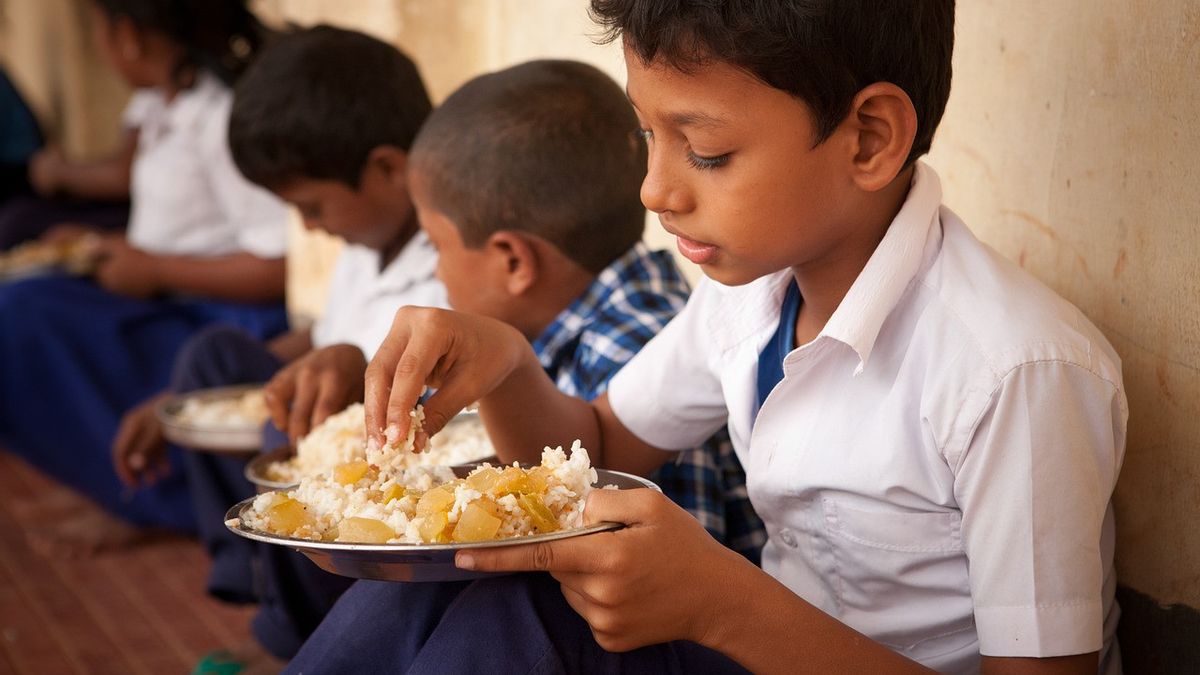YOGYAKARTA Adab or eating manners in Islam are not only just rules, but also worth worship when done with good intentions.
For information, manners are polite behavior that is applied in a day's life. This behavior reflects the personality that has been formed since childhood through the ways taught by parents and the surrounding environment.
Well, in Islam there are rules regarding polite behavior that must be applied by a Muslim when eating and drinking. This rule includes variation and amount of intake, food hygiene, eating together and so on.
Summarized from various sources, Tuesday, January 16, 2024, the following are the manners for eating and drinking in Islam that need to be applied:
1. Wash your hands before and after eating
The first manners to eat in Islam are washing your hands before and after eating food. It aims to clean your hands from dirt, dust, or bacteria that can enter the body when eating.
In addition, washing hands before and after eating also includes the sunnah of the Prophet SAW.
In a hadith narrated by Abu Dawud, the Prophet Muhammad said:
'If one of you wants to eat then let him wash his hands first.'
2. Read 'Basmala' before eating
Adab or manners to eat in Islam the second is reading basmalalah 'bismillairrahmanirrahim' before eating food.
Reading Basmala has the meaning that all the blessings that are felt come from Allah SWT and ask for success for all the blessings that have been given by Him.
Prophet Muhammad said:
"If one of you wants to eat then he should read bismillah. If he forgets to read it at the beginning then he should read bismillai fi awwalihi wahirhi."
3. Pray before eating food
Reading the prayer 'Allahumma barik lana fiima razaqtana waqina adzaba al-nar' is a manners before eating.
Prophet Muhammad said:
If one of you wants to eat then please pray 'Allahumma barik lana fiima razaqtana wagina adzaba al-nar.' (Hadis, Abu Dawud's history).
The prayer before eating is meaningful:
"O Allah, bless us in the sustenance You give us and protect us from the fire of hell."
4. Don't overeat
Often a person will stop eating when they feel full. In fact, in Islam this habit is not allowed.
The Prophet Muhammad SAW taught not to overdo it when eating food. This is to maintain a balance of the body and avoid greed, greed, or excessive in food.
This proposal for food and drink is contained in the Hadith of Rasulullah SAW narrated by Sunan Tirmidzi. The following reads:
Tidaklah manusia mengisi sebuah tempat yang lebih buruk daripada kanutnya. Sudahlah bagi anak Adam beberapa suap untuk menegakkan tulang katurnya. Jika tidak ada pilihan lain maka sepertiga untuk makanannya, sepertiga untuk mininya, dan sepertiga untuk nafainnya.
5. Eat with your right hand
Adab or manners to eat in Islam are then eating food with the right hand.
This is in accordance with the teachings of the Prophet SAW who always uses his right hand in every way, including eating and drinking.
Rasulullah SAW said:
"If one of you wants to eat, then he should use his right hand because that's actually eating and drinking with his left hand." (The history of Muslim Imam).
6. Not eating and while standing
The manners of eating and drinking in Islam, this one aims to maintain the health of the body and avoid disturbances due to the unstable position of the body when eating food.
7. Don't blow hot food
When eating, try not to blow hot foods and drinks. This is done to keep food and drinks clean from bacteria that come out of the mouth when blowing.
Prophet Muhammad said:
'Don't blow it in a vessel (drink) or in food.' (Hadis history of Sunan Abu Dawud).
8. Taking the food that fell
Taking the food that fell turned out to be a form of manners to eat and drink in Islam. This is a form of respecting the food given by Allah SWT.
Prophet Muhammad said:
"If one of you drops a piece of the food, then he should take it and then clean it from the dirt and then eat it and so he leaves it for the devil".
This is information about eating manners in Islam. Hopefully this article can add insight to the loyal readers of VOI.ID.
The English, Chinese, Japanese, Arabic, and French versions are automatically generated by the AI. So there may still be inaccuracies in translating, please always see Indonesian as our main language. (system supported by DigitalSiber.id)








